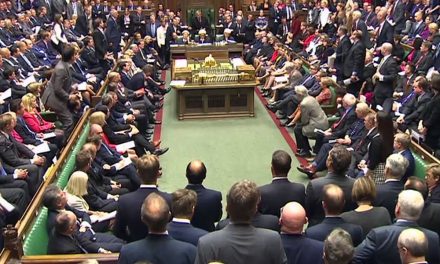The latest forecasts from the European Commission, on the 10th November, for the prospects of economic growth in 2012 have a consistent trend embedded in them: the number zero. There will be no growth.
Considering that either the entire Eurozone will collapse, or many of its members must leave, zero growth is extremely optimistic, even taking account of the figures being produced and massaged by the pro-integration, pro-Euro, pro-federalist Commission.
According to the Commission, as the economies of Europe stagger along, so to will the employment markets of the member states of the European Union. High unemployment will be the norm and remain consistent as the labour markets generally stagnate, though the Commission noted that in some states the labour market will perform better than in others, implicitly confirming the failure of the fourth 'freedom' of the European Union – the freedom for movement of labour. As labour is predominantly bound to the nation states of the EU, member governments are placed in difficult positions – take care of the people who elected them, by seeking to competitively align their national economy vis-a-vis other EU states within the confines of the EU bureacracy, or, play the unity game and inflict suffering on their own people for the sake of incompetent governments elsewhere in Europe and for the sake of the European dream.
The Commission noted that a highly volatile market scenario remained as the accounts of the Southern EU states are unravelled and put under scrutiny, and a large 'downside risk' that shares, investments and securities will decline across Europe as investors flee the ageing, uncompetitive, red-tape bound bureaucracy of Brussels.
Crisis breeds integration
This actually adds impetus to the calls from Euro-idealists for further integration, as the long-predicted collapse of the Euro under the inherent economic strains within starkly places two contrasts before Europe’s politicians – pull out of Europe and face a tumultuous adjustment process (though of course the focus remains only on the short adjustment period – the longer benefits are not discussed), or do the logical thing and integrate further. Wasting no time, Jose Manuel Barroso on the 17th November pointed these things out: “Markets, investors demand a stronger governance of the euro area. It is not just a political issue for those like me and many of you that share a passion for a stronger Europe. It is now a matter of common sense to have a stronger economic governance…in the European Union”. Barroso sees it clearly – once you are on the slope of a common currency, the markets and economic necessities demand ever further integration.
A long time ago
Of course, it was all so good in 2000, when Tony Blair and the other leaders of Europe invented the Lisbon Agenda for growth, aiming to transform Europe between 2000 and 2010 into the "most competitive and dynamic knowledge-based economy in the world capable of sustainable economic growth with more and better jobs…". Almost every word seems to have been written to mock the EU of today, twelve years later!
Wrong focus
The Lisbon Agenda's focus on the learning economy was a key mistake, as however much we can have ideas and be creative, all the actual productivity of creative people is tied to physical production. Financial traders buy and sell stock in real companies making real things. Big-Four accountancy firms audit and consult with companies making and selling real products to meet needs. Attempts to improve the education system in order to develop the knowledge economy have also largely failed, as investment banks raid the traditional sources of quality, like Oxford and Cambridge, for engineering or physics graduates, silently shunning the victims of the state-school system.
The focus on 'knowledge' itself can also be questioned, as knowledge without integrity is very dangerous. Reckless spending by Gordon Brown and Tony Blair, and the Greek, Italian, Spanish, Portuguese and even French governments, has exposed the 'knowledge' of left-wing economics. The debt-leveraging of Lehman Brothers' Richard Fuld might have seemed very clever once, but the day to repay always arrives.
A crisis has always been inevitable, but it will clear the debts and set the scene to start again. Some States will sacrifice more sovereignty, growth and flexibility to Germany's Bundesbank, and in so doing, create the new Europe – a rump controlled from Berlin. The rest may indeed be flocking to use a new Euro, called the British Pound. With their own experiments in tatters, it could be that the Pound becomes the currency of choice where the Euro once ruled!


